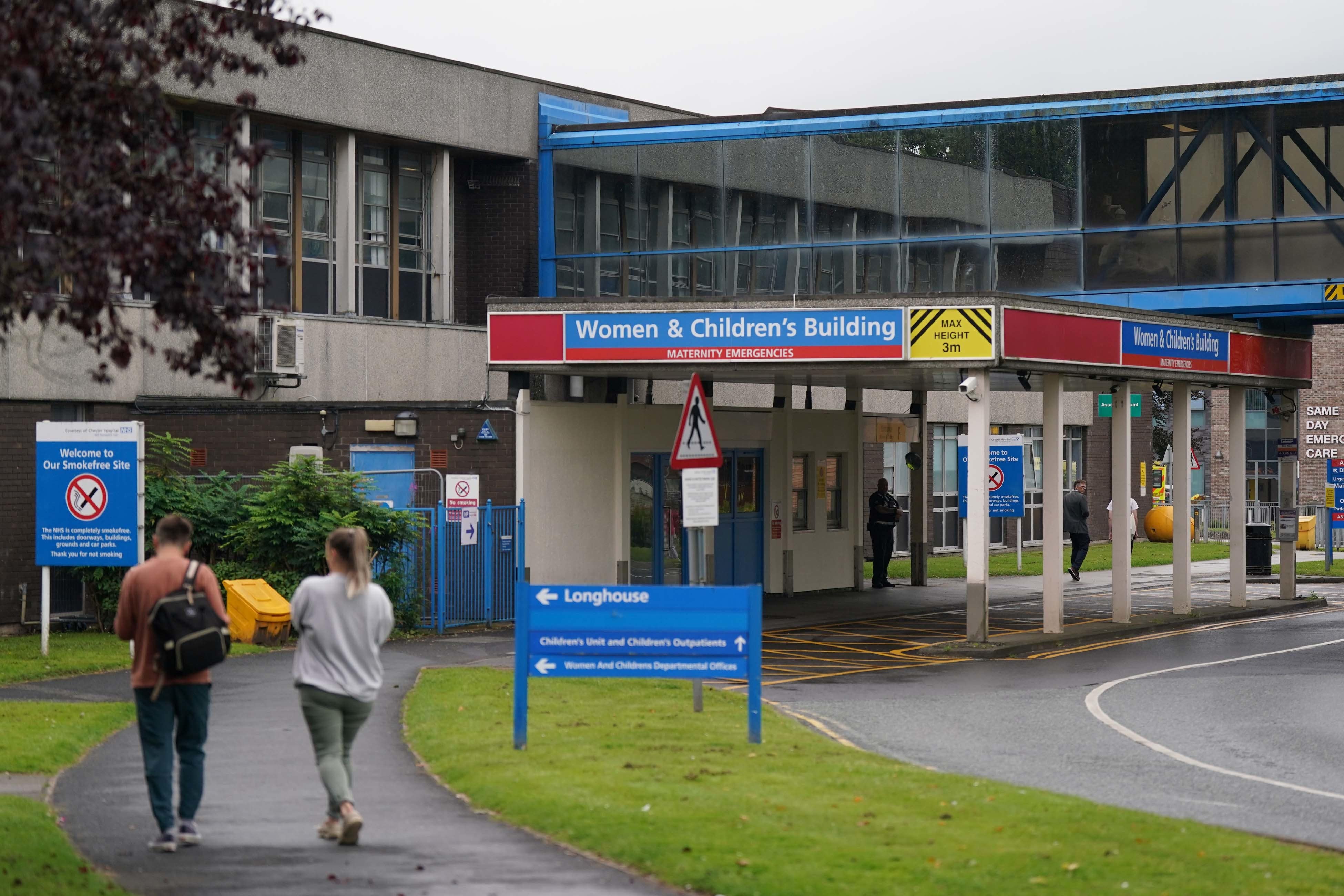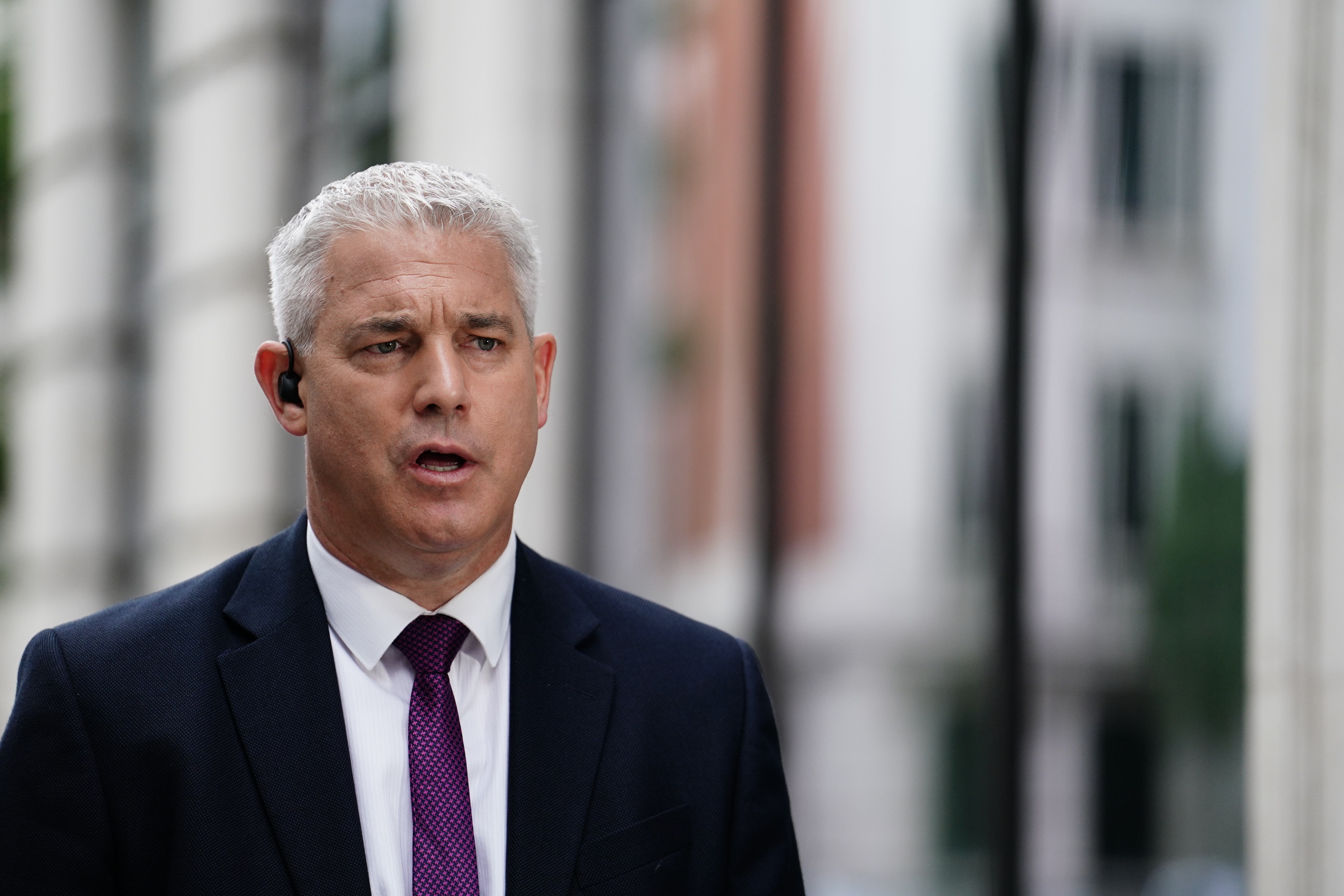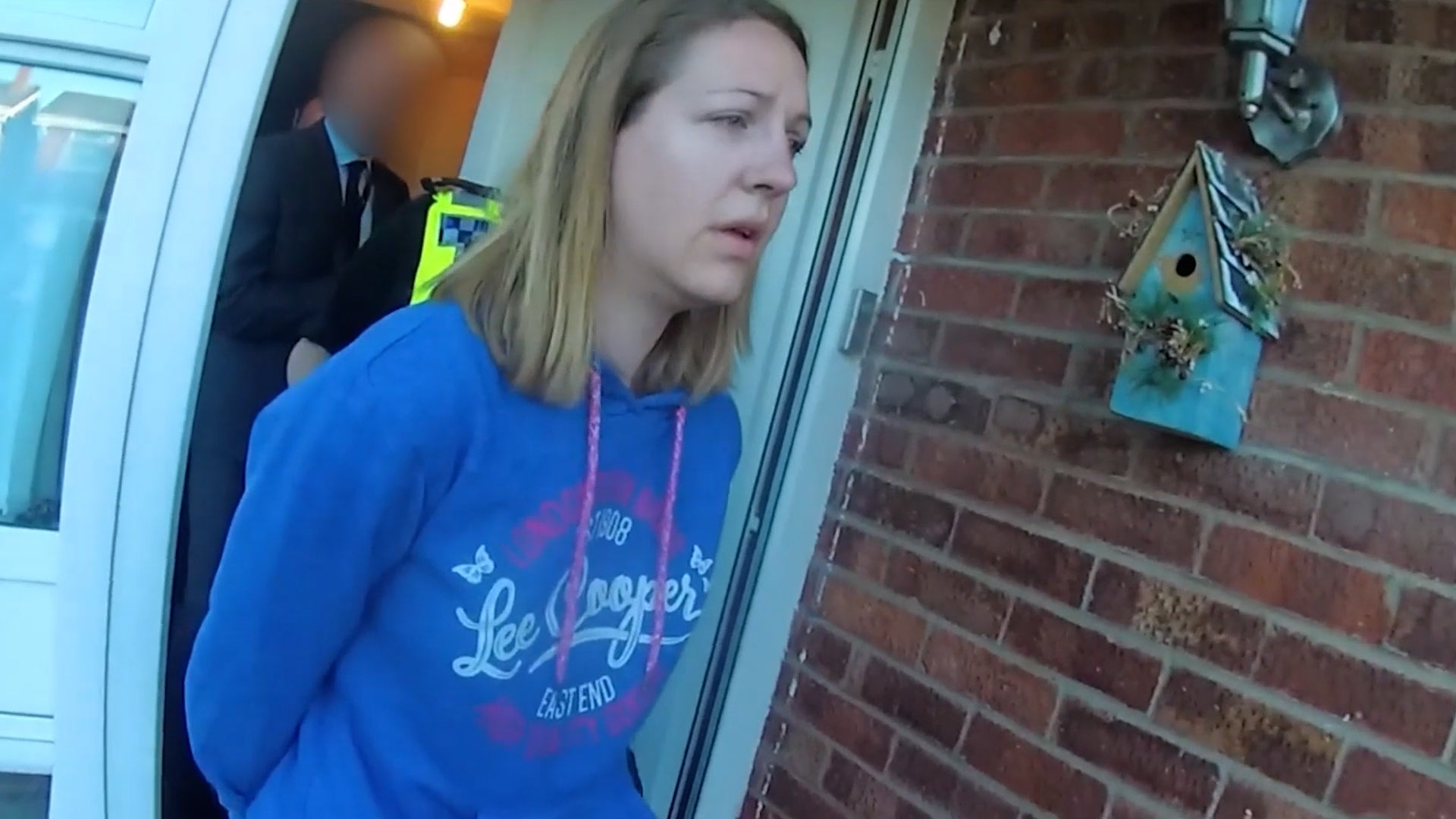Lucy Letby police to review care of 4,000 babies where killer nurse worked
Lucy Letby convicted of murdering seven babies and trying to kill a further six, prompting new police review and an independent inquiry
Police will review the care of 4,000 babies in hospitals where killer nurse Lucy Letby worked as the government announced an independent inquiry into how her murderous rampage went undetected.
It will look into the circumstances behind the murders of seven newborn babies at the Countess of Chester Hospital, after neonatal nurse Letby was found guilty on Friday, making her one of Britain’s most prolific child serial killers.
The 33-year-old deliberately injected infants with air or poisoned them with insulin between June 2015 and 2016. Other babies, who had been born prematurely or had specific vulnerable needs, were harmed by being fed excessive amounts of milk while one was physically assaulted.

The cases under police review cover her spell at the Countess of Chester Hospital from January 2012 to the end of June 2016, and include two work placements at Liverpool Women’s Hospital in 2012 and 2015.
Cheshire Police emphasised that only those cases highlighted as medically concerning would be investigated further, adding that the review at Liverpool Women’s Hospital does not involve any deaths.
“This does not mean we are investigating all 4,000,” said senior investigating officer Detective Superintendent Paul Hughes.
“It just means that we are committed to a thorough review of every admission from a medical perspective, to ensure that nothing is missed throughout the entirety of her employment as a nurse.”
He added: “We would be foolish if we were to think we have gathered all cases that Lucy Letby could have touched in one go. We are proud of our investigation but we are not that good to say we have got everything in one go.

“So we are committed to doing an overarching investigation looking at every single baby’s admission into neonatal unit for the entire footprint that Lucy Letby has been employed.
“There are some cases which have been initially highlighted to us at the moment as concerning by an independent review, and those parents have been informed about where we are with that investigation and are being supported.”
Concerns were first raised in June 2015 after three babies died over a period of two weeks, with Letby’s name first mentioned by paediatric consultants that October. However, she continued to work at the neonatal unit for months before being moved to clerical duties in July 2016.
Despite hospital bosses and the police conducting an investigation into the “unexplained and inexplicable deaths”, Letby was not arrested until July 2018, and was remanded into custody in 2020.
Letby was not in the dock when the jury returned their final verdicts on Friday, after 22 days and more than 100 hours of deliberation. While her parents were also absent from the court, families of the victims were in the public gallery.
Verdicts on 16 of the 22 counts she faced were returned by the jury on earlier days but could not be reported until now. She was found not guilty of two attempted murders and the jury could not reach verdicts on six counts of the same charge.

When the first two guilty verdicts were returned, to two counts of attempted murder, on 8 August, Letby fought back tears in the dock and cried as she left the courtroom. After the jury confirmed they were unable to reach verdicts in relation to four babies, the relatives of one of the infants stormed out of court.
Letby will not attend court for sentencing on Monday and has indicated that she does not wish to follow the hearing via videolink from prison. The judge, Mr Justice Goss, said: “The sentencing hearing will of course take place whether she is present or not.”
Following the sentencing, health secretary Steve Barclay announced an independent inquiry which “will seek to ensure the parents and families impacted get the answers they need”.
The inquiry “will help us identify where and how patient safety standards failed to be met and ensure mothers and their partners rightly have faith in our healthcare system”, Mr Barclay said.
It will look at governance and how concerns were handled, and at what actions were taken by regulators and the wider NHS.

Countess of Chester medical director Dr Nigel Scawn said: “I speak for the whole trust when I say how deeply saddened and appalled we are at Lucy Letby’s crimes.
“We are extremely sorry that these crimes were committed at our hospital and our thoughts continue to be with all the families and loved ones of the babies who came to harm or died. We cannot begin to understand what they have been through.”
The case has had a “profound” impact on patients, the local community and on staff, who are “devastated by what happened and we are committed to ensuring lessons continue to be learnt,” Dr Scawn said.
“We are grateful for the cooperation of our staff, especially those who have maintained the utmost professionalism whilst giving evidence in the trial, sometimes on multiple occasions. We will continue to support them and other staff to ensure they receive the care and support they need,” he added.
“Since Lucy Letby worked at our hospital, we have made significant changes to our services. I want to provide reassurance that every patient who accesses our services can have confidence in the care they will receive.”
In a joint statement, families of the victims said: “Words cannot effectively explain how we are feeling at this moment in time. We are quite simply stunned.

“To lose a baby is a heartbreaking experience that no parent should ever have to go through, but to lose a baby or to have a baby harmed in these particular circumstances is unimaginable. Over the past seven to eight years we have had to go through a long, torturous and emotional journey.
“From losing our precious newborns and grieving their loss, seeing our children who survived, some of whom are still suffering today, to being told years later that their death or collapse might be suspicious, nothing can prepare you for that news.”
Additional reporting by PA
Subscribe to Independent Premium to bookmark this article
Want to bookmark your favourite articles and stories to read or reference later? Start your Independent Premium subscription today.





